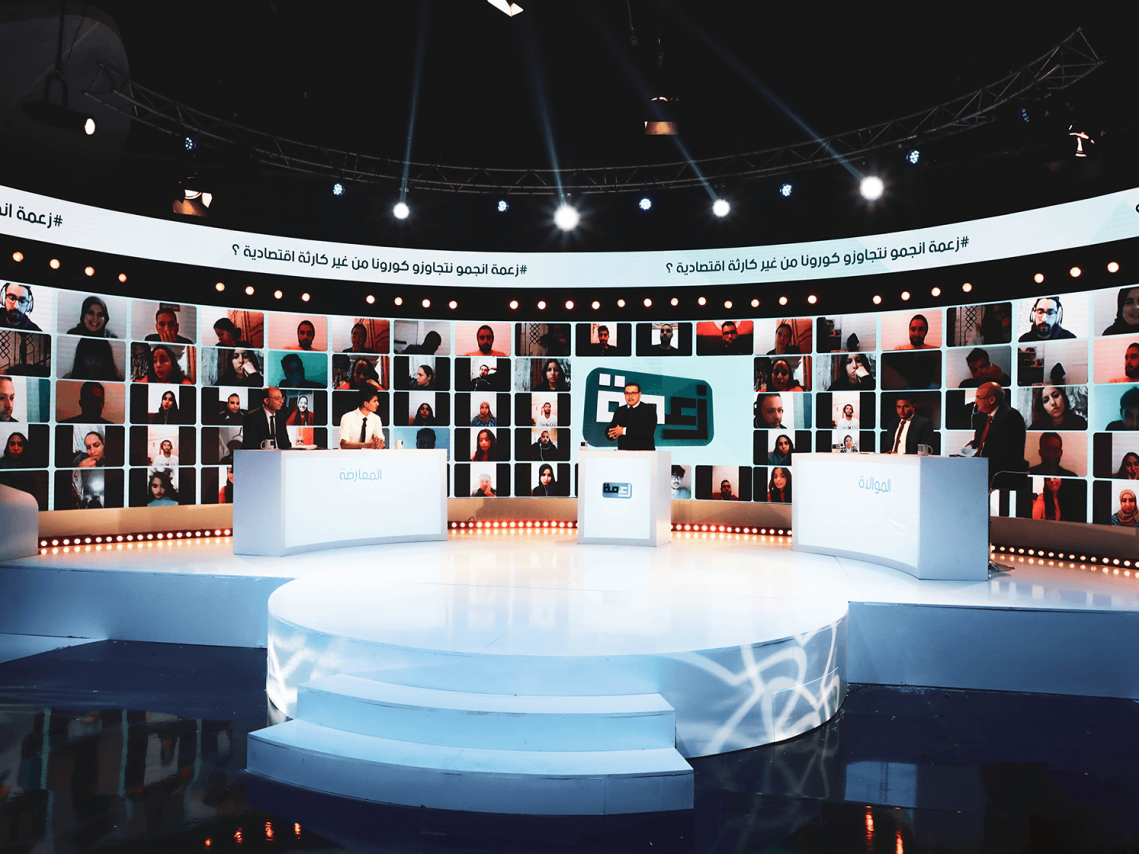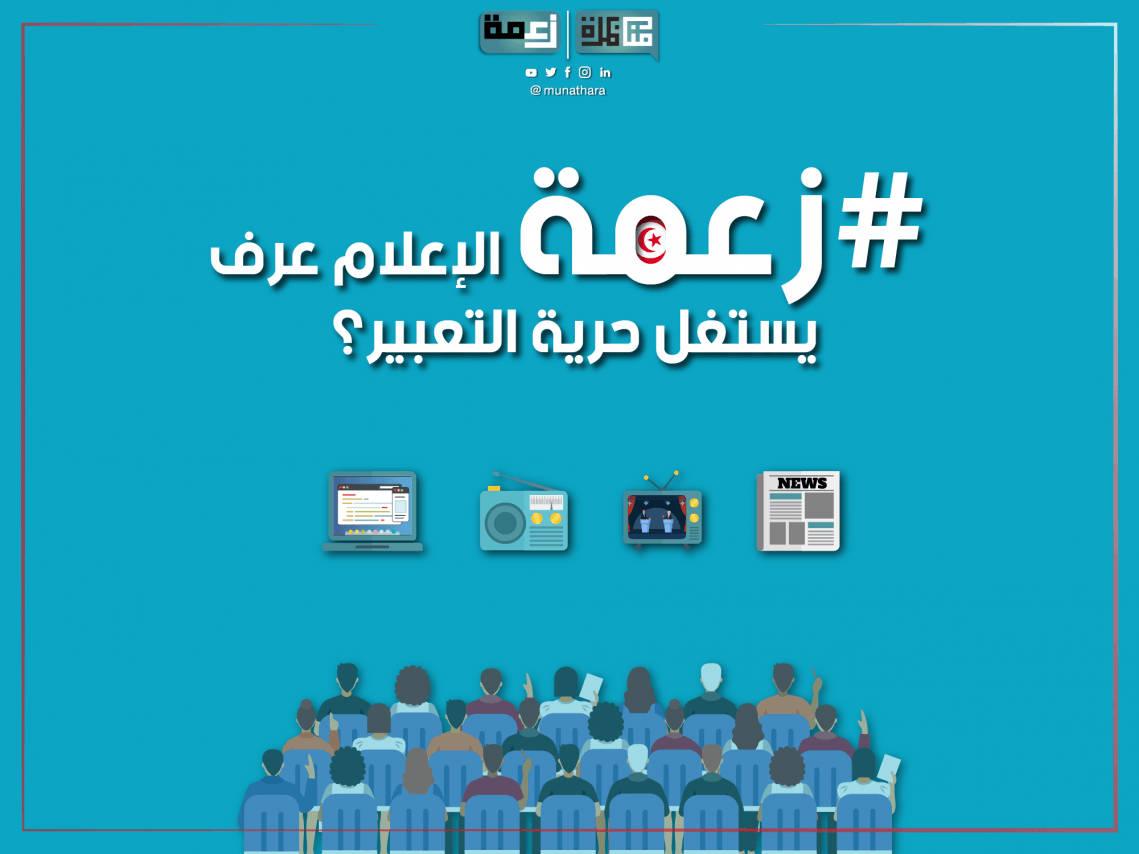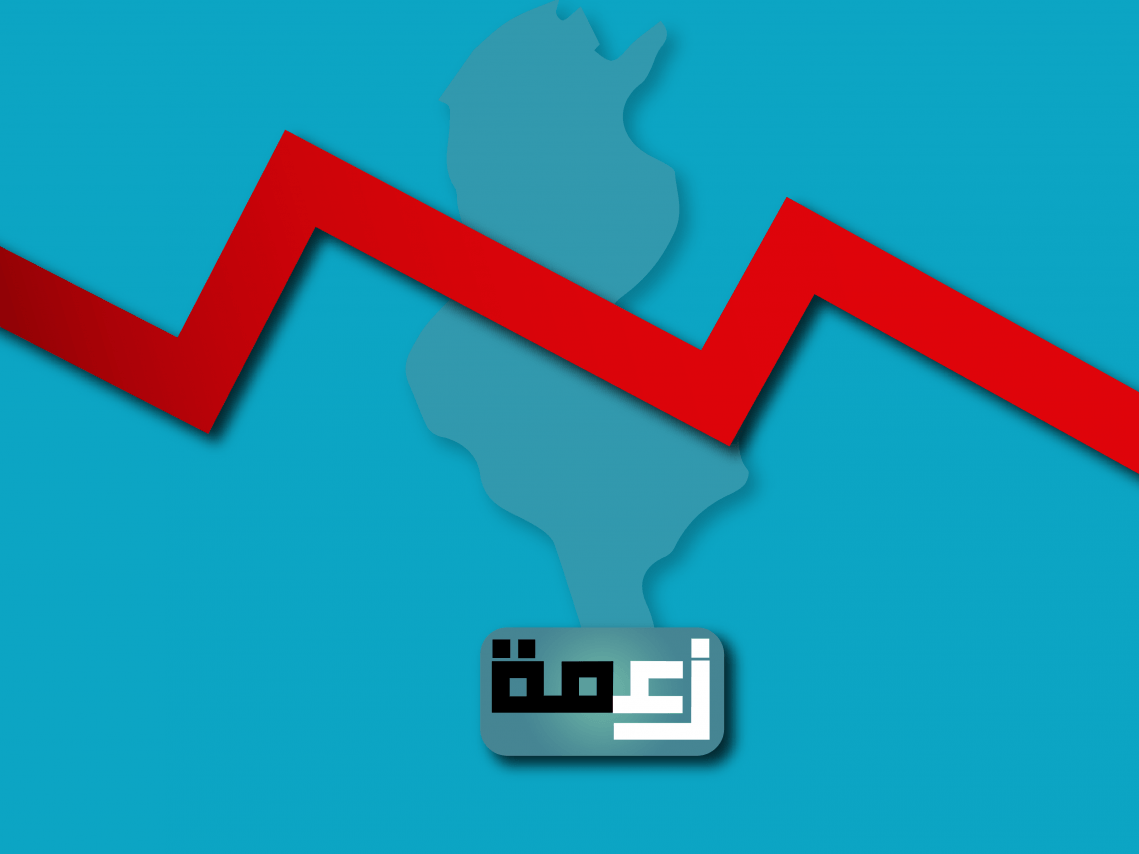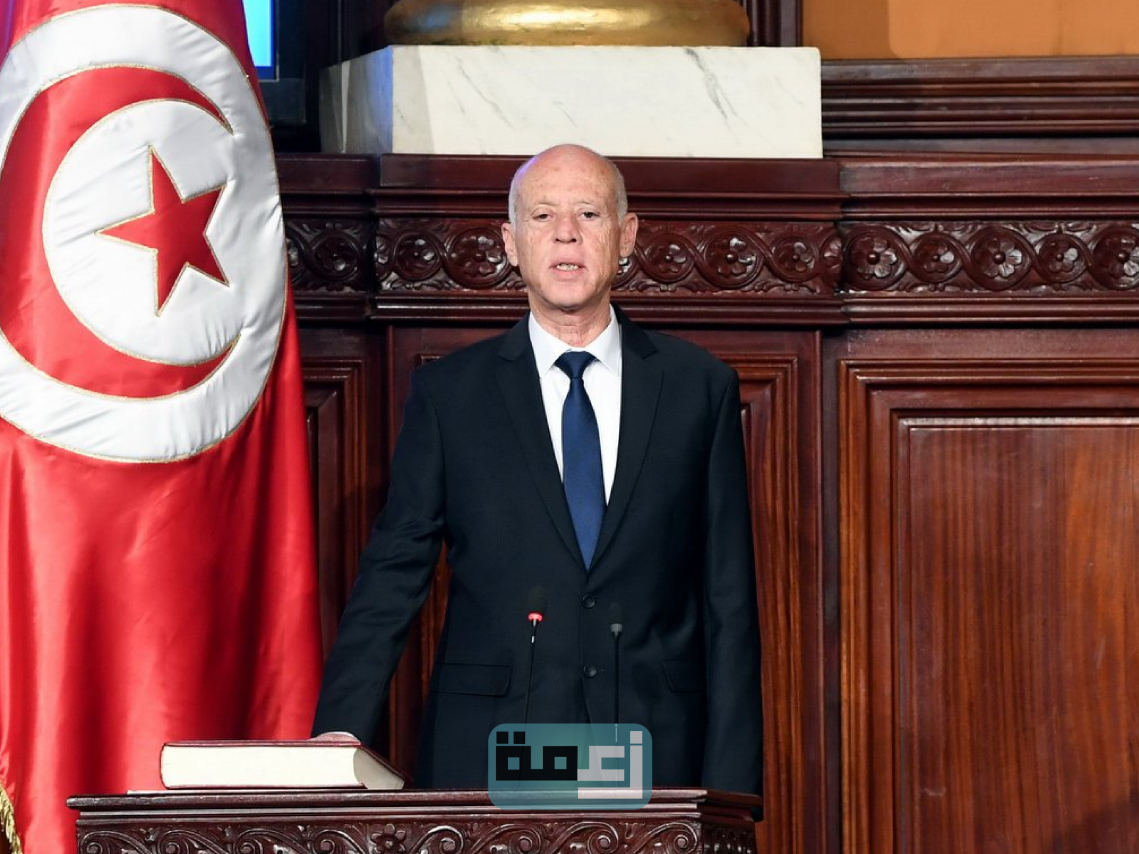#Zaama
#Zaama is the first series of national televised debates in Tunisian dialect, discussing the country’s most pressing political and social issues, and featuring youth alongside well-known Tunisian politicians and analysts.

The Munathara Initiative launched #Zaama (a Tunisian colloquial term that, depending on context, signifies doubt, guesswork, possibility or hope) in 2020 as the first Tunisian national series of prime-time televised debates. Using Tunisian dialect to discuss the most pressing political and social issues, Zamaa features youth alongside well-known Tunisian politicians.
Participation in #Zaama is open to all Tunisians. Leading up to the live shows, the Munathara Initiative launches the Musabaqat #Zaama in the form of online competitions that are disseminated on our social media pages and through our official website. Participants are then able to upload a 99-second video to either support or oppose a presented motion.
Simultaneously, the Munathara Initiative organizes training sessions across Tunisia in order to support youth, women, and marginalized communities (YWM) and provide them with the opportunity to be equally heard. Our network of certified Tunisian facilitators provides debate skills training to these communities and encourages as well as facilitate their participation in the online competitions.
The videos gathered from both Munathara’s online campaign and outreach programs proceed to a public voting stage, where audiences from across the country vote for the arguments and participants they find most convincing. The two winners with the most votes are then invited to participate in the live #Zaama debate, each forming a team with a Tunisian politician with equal speaking time alotted among them.
The #Zaama national series of televised debates aims at promoting inclusive public debate in Tunisia and in the Arabic speaking world to the broadest number of citizens possible. However, we also believe that youth in the region not only have the capacity, but a right to be represented and heard on major media platforms. We thus hope to provide a forum for new opinion leaders to emerge from among MENA youth, for a much-needed diversification of the political talking sphere in the region.
Past competition
Since 2011, successive governments in Tunisia fell between two key problems, social demands and structural reforms of the economy, which required a
With the outbreak of the so-called Arab revolutions, social media took on a new resonance, particularly on the Facebook platform, where young peopl
Tunisia is falling back in the global market following its “CAA1” classification by Moody's Investors Service hitting Tunisia’s credibility with in
The media sector is arguably the biggest beneficiary of the freedom of expression that Tunisia gained following the 2010-2011 revolution. This is
Tunisian youth is an important demographic.
Public education was one of the main pillars of modern state-building in Tunisia.
In December of 2020, Tunisia will celebrate the first decade of the Jasmine Revolution, which was sparked on December 17, 2010, and ended on Januar
Since 2011,Tunisia has been living under the pressure of an economic crisis, deepened by the repercussions of the health crisis caused by the sprea
On October 23rd, 2019, Kais Saied was sworn in as the second directly elected Tunisian president after the revolution.
On the 10th year of the revolution, some believe the current political system has succeeded in preserving political balances; It stood impregnable










